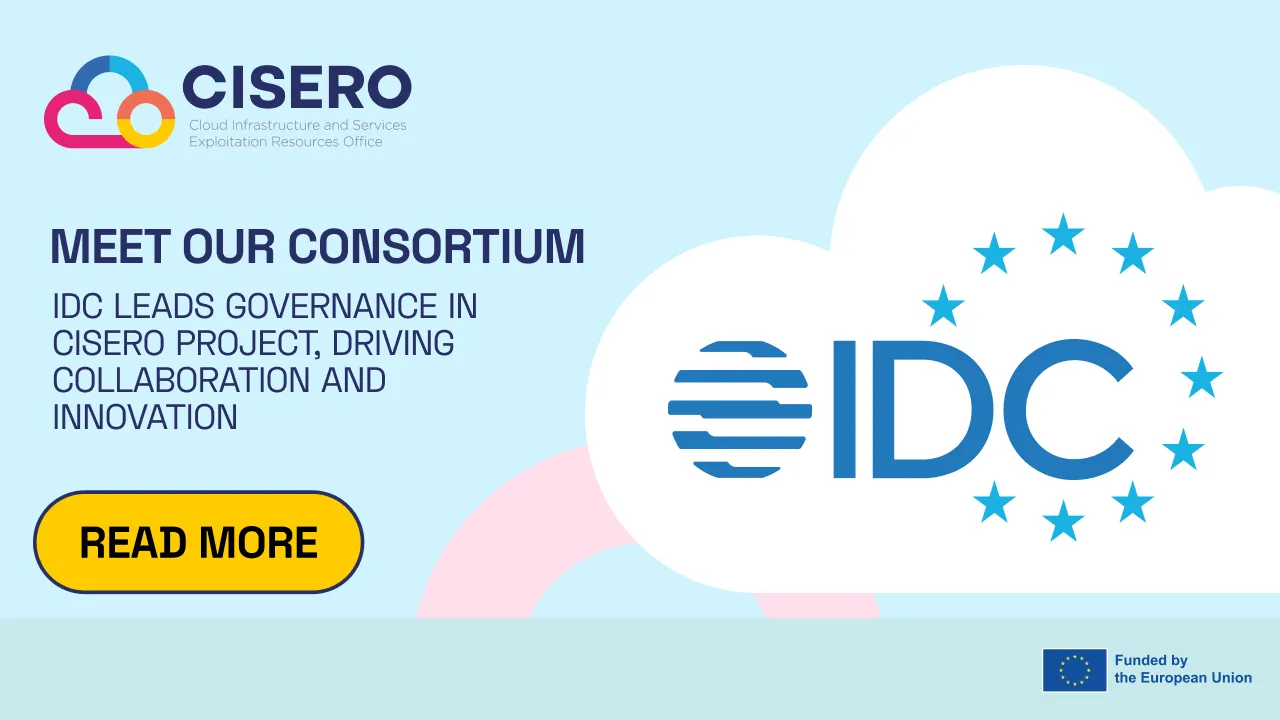IDC’s Role in the CISERO Project: Leading the Way to Sustainable Cloud Infrastructure Innovation
20, January, 2025

An important player in determining the direction of digital transformation is the International Data Corporation (IDC), a well-known leader in market information and consultancy services on a global scale. Since its founding in 1964, IDC has established a solid reputation for providing organisations navigating the intricacies of consumer technology, telecommunications, and information technology with incisive analysis and workable solutions. IDC offers thorough insights into regional and global trends through its vast network of more than 1,300 analysts in more than 110 countries, enabling companies and policymakers to promote innovation and long-term growth.
IDC4EU, a specialised division of IDC, aids European institutions by tackling the EU's priorities in the areas of economic competitiveness, sustainability, and digital transformation as part of its mission. Initiatives including green transitions, regulatory compliance, and the development of progressive technology are supported by IDC4EU's customised research.
IDC leads Work Package 2 (WP2) of the CISERO project, which is tasked with developing a long-term plan to guarantee the viability of Important Projects of Common European Interest in Cloud Infrastructure Services (IPCEI-CIS). The goal of this roadmap is to offer strategic insights into important technological and non-technical subjects that will influence the computing continuum and market demand for cloud infrastructure services. Effective exploitation and go-to-market (GTM) strategies are made possible by these insights, which are essential for matching IPCEI-CIS initiatives with future market demands.
IDC leads WP2 through five main items:
- Creating a thorough framework based on the main IPCEI-CIS priorities is known as framework development. This framework covers both technical and non-technical pillars, including open-source software, standards, skills development, sovereignty, cloud-edge infrastructure, hardware for edge nodes, the telecoms environment, and AI/GenAI for cloud-edge environments.
- Demand Market Analysis: To lay the groundwork for strategic planning, evaluate the present situation, trends, possibilities, and difficulties across the designated pillars.
- Assessing and mapping particular IPCEI-CIS solutions in relation to the established framework pillars is known as solution mapping.
- Gap analysis finding discrepancies between the supply of solutions and market demand, revealing development potential and obstacles.
- Plan Development: Combining the results of previous stages to create a final plan that complies with IPCEI-CIS priorities and offers stakeholders practical advice.
By means of these initiatives, IDC guarantees that the sustainability roadmap takes into account the short-term as well as long-term requirements of the computing continuum and cloud infrastructure industries. Its efforts promote the EU's overarching objectives of innovation, sustainability, and sovereignty while also assisting IPCEI-CIS initiatives in remaining competitive and relevant in a rapidly changing technological context.